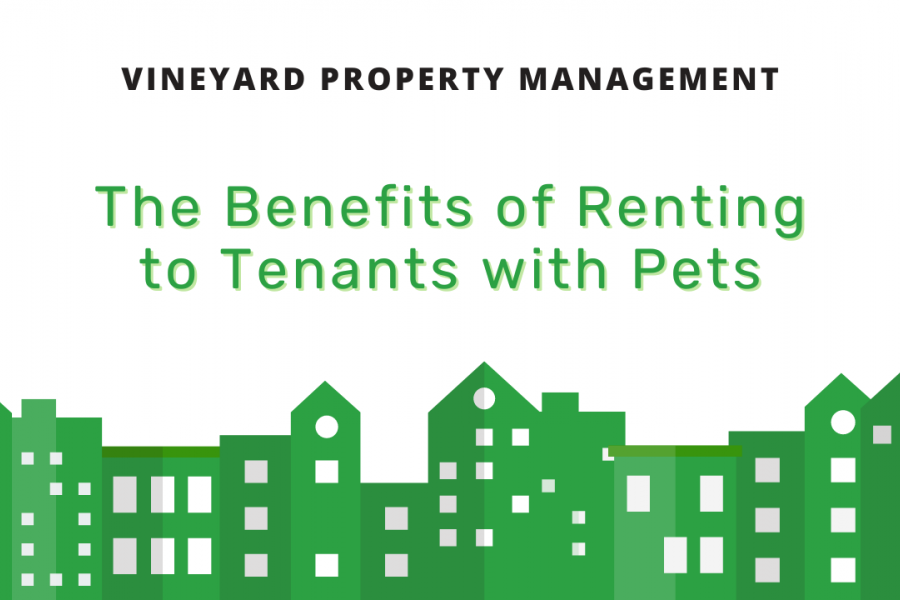
With the popularity of pet ownership, every landlord needs to decide whether to accommodate tenants with pets or not. Both offer their own pros and cons to consider. Read our guide here to determine whether allowing pets in your rental is the move for you!
The Benefits Of Welcoming Tenants With Pets
Some landlords may hesitate to open their rental doors to tenants with pets, but several advantages can present themselves.
Receiving More Income
Tenants who own pets are often more willing to pay for extras, such as pet deposits, pet rents, or pet fees. As a landlord, this can be a good opportunity to increase your source of income.
Increasing Renter Satisfaction
It is known that having pets around offers more emotional comfort. This results in happy tenants, which can increase their long-term stay in your rental unit. The more pets feel comfortable in your unit, the more likely renters will also stick around.
Widening Tenant Selection
The popularity of pet ownership increases the need for tenants to find rental spaces that accommodate pets. If you are a pet-friendly rental, you are likely to have more candidates to choose from, which leads to landing top-tier renters.
Gain Long-Term Renters
It takes time to find suitable rental units and friendly landlords who welcome pets. That’s why tenants with pets won’t likely move around a lot or hop from one address to another.

Pet owners also prefer to have their pets stay in a familiar environment, reducing vacancies and securing your steady rental income.
Attract Responsible Occupants
Those with pets tend to be responsible tenants. From tenants with pets, you can more readily expect consistent rent payments and property upkeep.
Assign A Higher Rental Rate
Since there tend to be fewer pet-friendly accommodations available, renters are often open to paying more rental fees so their pets are welcomed. This provides landlords the opportunity to ask a higher monthly rent for their property.
The Downsides To Welcoming Tenants With Pets
Although many benefits accompany pet-friendly rentals, there are also risks involved that a landlord needs to manage.
Potential Property Damage
Pets can bring a lot of damage. They can end up contributing to stained carpets and scratches on doors and floors. However, if pets are well-trained, these damages can be avoided.
Noise Issues
Among the common tenant complaints when managing a rental is the noise produced by pets. Neighbors can report you or conflicts between tenants can materialize.
Barking and howling dogs in the middle of the night can lead to public disturbances. If sending warnings to the tenants is of no help, you will have to consider asking them to rehome the pet or move out of the property.

Possibility Of Injuries
While some dogs are gentle, others can be territorial and frighten other renters due to their aggressive nature. Before allowing tenants with pets to occupy your rental unit, it’s a good idea to screen the pet to get an idea of their personality.
Keep in Mind
Here are a few additional things to keep in mind when deciding whether to allow pets in your rental property.
Fair Housing Law Compliance
Whether you welcome pets in your rental space or not, every landlord is expected to follow the Fair Housing Act, which means you cannot deny the residence of a person with a disability who owns an assistance animal.
This type of animal does not fall under the label of a pet. You are required to accept service animals, even when your rental property does not accommodate pets.
Checking your Insurance Coverage
It is vital for landlords to study their insurance policies concerning liability. You might not be aware of the conditions around the extent of coverage for pet injuries. It can be costly to pay for medical expenses from your own account.
Pet Policy Inclusion in the Lease
Part of your rental agreement must state your policy regarding the acceptance of pets. Without this, tenants may end up owning pets since it is not mentioned in the lease. Ensure that you outline the penalties as well when pet policies are violated by the renter.
Bottom Line
Before making up your mind whether to allow pets in your rental property, weigh the advantages and disadvantages. Exercising flexibility can lead to more benefits since risks are inherent in the business. It is worthwhile to consider the returns you can get by accommodating tenants with pets.
You can always hire Vineyard Property Management for additional support in managing your rental space and tenants with pets. Contact us today!
